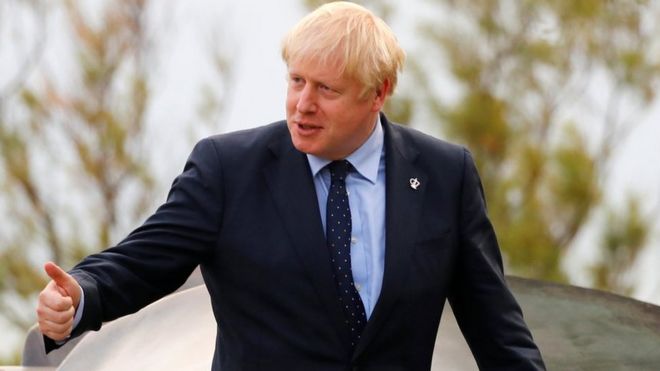The trade in bell peppers mostly occurs within the EU and within North America. Three countries dominate the export, Spain, Mexico and the Netherlands. These three countries represent nearly two-thirds of the total global trade. At a distance, the US, Turkey, Canada, Morocco, China and Israel are the other countries that count as exporters of bell peppers.
As is often the case, the import countries vary greatly. The continents remain the same, but two countries stand out, the US and Germany. The UK, France, Canada, Russia and the Netherlands are other import countries of meaning. Of the large exporters, only Dutch bell peppers are sent to destinations further away than the US and Japan. Spanish product is practically only traded within the EU, and the countries in North America practically exclusively trade bell peppers with each other. Only Israel looks for sales markets further away. The same is true for Morocco to a lesser extent.
In total, approximately 2.5 million tonnes of bell pepper was internationally traded in 2016. The global trade is steadily growing. Because many countries only publish figures of bell pepper and pepper combined, it can’t exactly be said how the world trade developed. The global trade in bell peppers, including peppers, grew from 1.5 million tonnes in 2000 to 2.0 million tonnes in 2005, 2.5 million tonnes in 2009, 3.0 million tonnes in 2013 to 3.35 million tonnes in 2016.
Scaling-up in the Netherlands
For more than ten years, the bell pepper area in the Netherlands fluctuated between 1,200 and 1,400 hectares. In 2016, it was 1,320 hectares. Production also remained fairly stable, and has been around 350,000 tonnes for about ten years now. In 2016, it was 345,000 tonnes. However, a large change occurred in the size of bell pepper cultivation companies. In 2000, there were about 700 companies growing bell pepper. By now, that number has dropped to 250. On average, a bell pepper company is more than five hectares. In 2010, the export of bell peppers grown in the Netherlands reached a peak with 320,000 tonnes. In 2013, this dropped back down to 270,000 tonnes. Last year saw some more export again, with 305,000 tonnes.
Germany is the most important sales market for Dutch bell peppers. Last year, the export to our neighbours to the east, however, dropped to less than 100,000 tonnes. In 2013 it was also that little. In 2010, 120,000 tonnes could be sold in Germany. Spain is the most important competitor on the German market. The import of Spanish bell peppers grew to more than 200,000 tonnes in Germany last year. Nowadays, Spain supplies bell peppers in large volumes year-round. On the German market, the import from the Netherlands is only larger than that of Spain from June to September. Spain and the Netherlands combined represent more than 80 per cent of the total German import.
The UK is the second buyer of Dutch bell peppers. After the peak of 70,000 tonnes in 2014, export dropped to 65,000 tonnes last year. On the British market, the Netherlands, with 86,000 tonnes including re-export product, is still the most important foreign supplier, but Spain is on the rise. In 2016, Spain could supply 80,000 tonnes compared to 50,000 tonnes in 2013, and not yet 30,000 tonnes in 2010. Both of these countries are good for almost 90 per cent of the British import. The Netherlands mostly supplies mixed-packs of bell pepper to the UK; in 2016 more than 31,000 tonnes. Many green bell peppers also cross the North Sea in proportion.
More to the US
Germany and the UK combined were good for more than half the export of Dutch bell peppers. The US was in third place. Last year, 25,000 tonnes more could be sold on that market compared to the years before. In 2014, export to the US even dropped to just 10,000 tonnes. In proportion, mostly orange bell peppers are sent to the US, and a significant number of yellow ones. The US is even the most important sales market for orange bell peppers. The share of Dutch bell peppers on the American market, however, is limited. This market is, besides being self-supporting, mostly supplied the world’s most important exporter, Mexico. Canada is also a much larger supplier than the Netherlands.
The export of Dutch bell peppers to Sweden, Poland and Norway has shown a good growth in recent years. In Sweden and Norway, the Netherlands is the most important supplier, ahead of Spain. On the Swedish market, the import from Spain is showing an increase as well. The import of Spanish bell peppers is stagnating on the Norwegian market. Spain is much larger than the Netherlands on the Polish market.
The export from the Netherlands to the Czech Republic, Denmark and France went less well last year, while Spain managed to supply more to these markets. Fewer Dutch bell peppers were also sent to Ireland, Switzerland, Finland and Italy last year.
Besides the US, Japan is another distant sales market for bell peppers. Compared to previous years, more was exported to Japan, but the 6,400 tonnes weren’t as much as the 7,700 tonnes sold there in 2012. In proportion, many yellow bell peppers are sent to Japan. The Netherlands is the second supplier on the Japanese market, far behind Korea.
China profits from Russian import boycott
The loss of the Russian market mid-2014 also affected the supply of bell peppers from the boycotted countries. In proportion, this didn’t affect bell peppers as much as other products. In 2012 and 2013, about 40,000 tonnes were imported from the boycotted countries. The Netherlands was by far the most important, with a total of about 20,000 tonnes, of which 5,000 tonnes were Dutch product. From Spain, it was even a bit less, although the Russian import figures also show a larger amount of Spanish import than Spanish export figures.
Israel has been the largest supplier of Russia by far, with an amount of 80,000 tonnes in 2013. Despite the boycott, import from Israel dropped to 60,000 tonnes in 2015, and last year even to 50,000 tonnes. The export of Israeli product to EU countries has dropped significantly. Not even 4,000 tonnes was sent to the Netherlands last year, compared to nearly 50,000 tonnes in 2012.
More export from Morocco and Turkey
Morocco is also on the rise as supplier of bell peppers. The export grew rapidly, to more than 80,000 tonnes. Spain is the most important buyer, followed by France. Turkey also supplies more and more bell peppers, especially to EU countries. The Moroccan export season is from December to May. The Turkish export season shows a similar picture.



